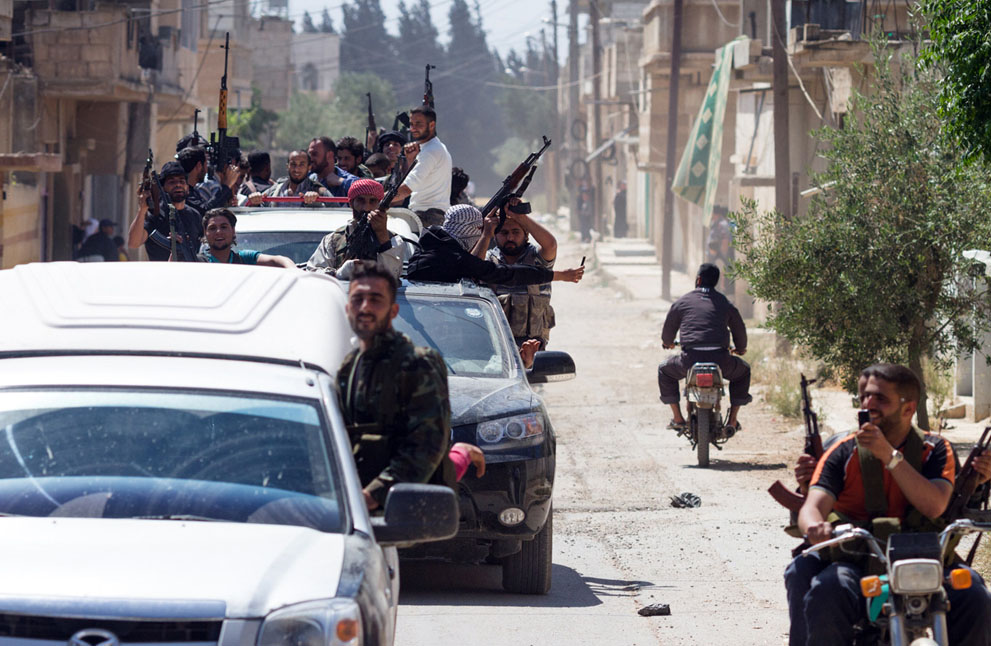
(AFP Photo)
President Abdel-Fattah Al-Sisi spoke to US President Barack Obama Tuesday evening, following an announcement the White House will resume suspended military aid to Egypt after almost two years of restrained support.
The Egyptian presidency reported that President Obama confirmed in the phone call his administration’s intention to resume the arms deals that had been suspended since October 2013. These include 12 F-16 fighter jets, 20 Harpoon missiles, and equipment for M1A1 Abrams tanks. President Obama also stated his intention to maintain annual requests to Congress for $1.3bn of military aid, which places Egypt as the second-largest recipient of US foreign military financing worldwide.
However, while statements from both Presidencies’ press desks gave positive accounts of the developments, they omitted a new condition prohibiting Egypt to use aid from future years as credit to finance current military purchases. This, in effect, will limit Egypt to purchasing smaller-scale weapons purchases. It is being seen as the US attempting to draw Egypt in to focusing more on counter-terrorism resources than large-scale national purchases.
Following the Egyptian army’s ouster of former president Mohamed Morsi in July 2013, led by then-Minister of Defence Al-Sisi, the US halted a significant portion of their vast military support to Egypt. The White House announced that this was policy when a coup unseats a democratically elected government. Following this, the US said there would have to be concrete steps taken by Egypt towards democratic transition, human rights, and rule of law in order for the resumption of the aid.
The conditions on the aid stated Egypt must hold free and fair elections, respect civil society organisations and freedom of expression. It also called for the release of US political prisoners in Egyptian jails.
However, in December of last year, the draft of the White House’s budget for the upcoming year included a new stipulation that the US is able to waiver poor progress on democratic indicators should it be deemed in interest of national security.
A statement from White House spokesperson Bernadette Meehan, as reported by AP, said Tuesday that their administration will not be acknowledging any democratic progress in Egypt. Meehan stated that the aid is to be resumed on the basis of national security. He added that the assistance is to help tackle Egypt’s Islamic State affiliated extremist group State of Sinai that has launched deadly attacks on security forces and civilians.
Indeed, a readout from the Egyptian phone call on the conversation’s content, noted that the resumption of support is in “favour of achieving the common strategic objectives of the two countries, particularly with regard to efforts to combat extremism and terrorism, and the maintenance of security, especially in Sinai”.
Egypt is currently positioning itself as a key regional player in the international war on extremist groups. It has called for the establishment of a united Arab military force to tackle groups such as Islamic State and has nominated itself for a non-permanent seat on the UN Security Council. Al-Sisi has criticised the suspended transfer of arms, such as the F-16 jets, for hindering his government’s ability to tackle terrorism.
According to the US account of the phone call, President Obama also reiterated “concerns about Egypt’s continued imprisonment of non-violent activists and mass trials. He encouraged increased respect for freedom of speech and assembly and emphasised that these issues remain a focus for the United States”.
Whilst the Egyptian account did not mention this, it said President Al-Sisi “is sparing no effort to establish the rights and freedoms at all levels, something that has been achieved in practice through many developments”. However, Al-Sisi’s administration has come under fierce criticism globally for unfair mass trials, the effective banning of protest, and the inhuman treatment of citizens in custody, among other abuses.


